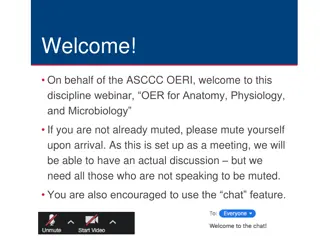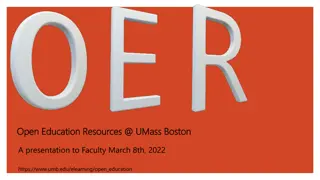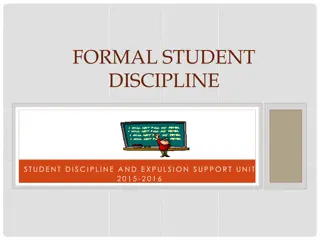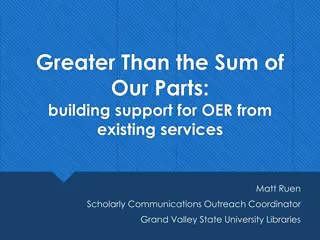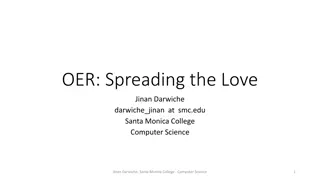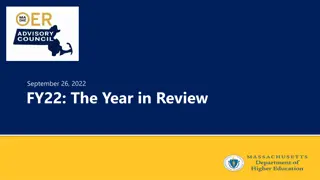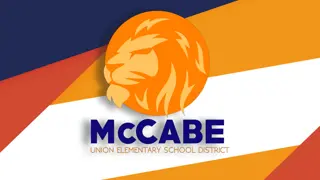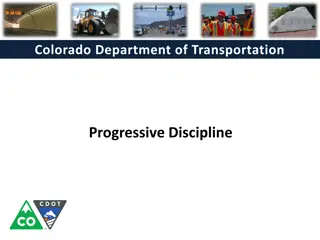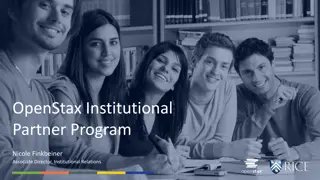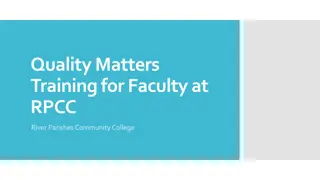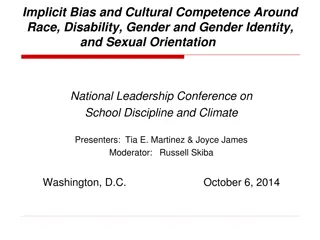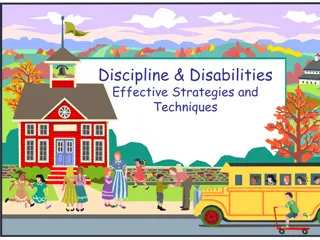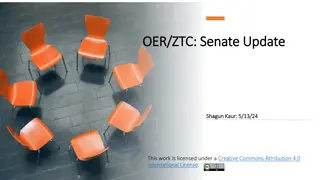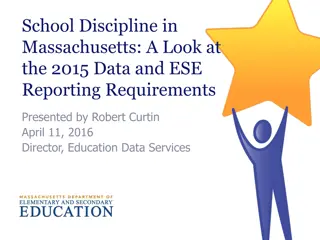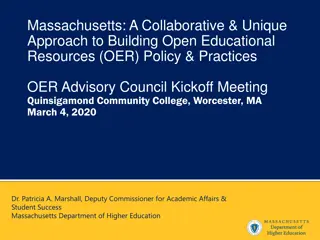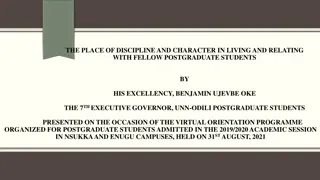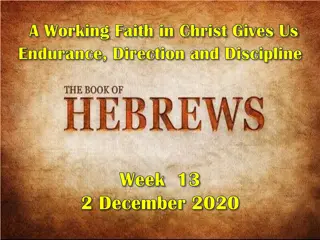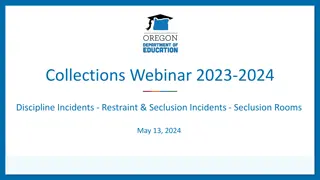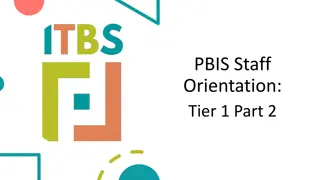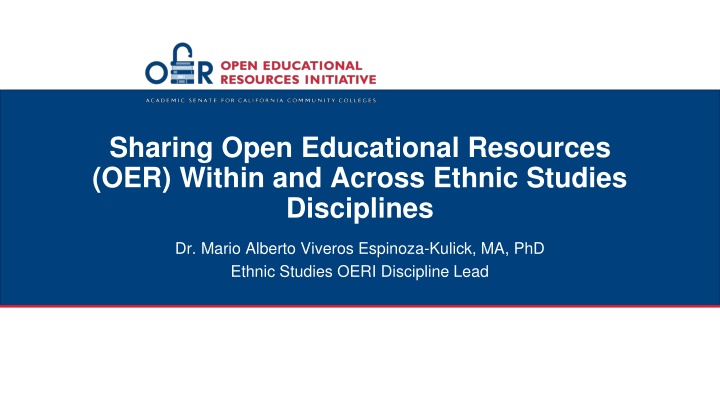
Empowering Teaching with Open Educational Resources in Ethnic Studies
Join us for a conversation led by Dr. Mario Alberto Viveros Espinoza-Kulick where faculty will discuss the use of Open Educational Resources (OER) within Ethnic Studies disciplines, exploring successes and sharing insights across various fields such as Black Studies, Native American Studies, Chicanx and Latinx Studies, and more. Learn about the significance of acknowledging historical contributions and the 5R permissions of OER, as defined by Creative Commons.
Download Presentation

Please find below an Image/Link to download the presentation.
The content on the website is provided AS IS for your information and personal use only. It may not be sold, licensed, or shared on other websites without obtaining consent from the author. If you encounter any issues during the download, it is possible that the publisher has removed the file from their server.
You are allowed to download the files provided on this website for personal or commercial use, subject to the condition that they are used lawfully. All files are the property of their respective owners.
The content on the website is provided AS IS for your information and personal use only. It may not be sold, licensed, or shared on other websites without obtaining consent from the author.
E N D
Presentation Transcript
Sharing Open Educational Resources (OER) Within and Across Ethnic Studies Disciplines Dr. Mario Alberto Viveros Espinoza-Kulick, MA, PhD Ethnic Studies OERI Discipline Lead
Acknowledgments We recognize that the foundation of the United States was built by the uncompensated labor of enslaved Black and Native people. The contributions of people from the African diaspora were forcibly taken amidst violence and systemic injustice. Our social systems are also designed to exploit and ignore the work of undocumented workers and communities who make invaluable contributions to agriculture and care work. We collectively acknowledge that Cuesta College occupies the ancestral, traditional, and contemporary lands of both the Salinan and the Northern Chumash who are the original, current, and future caretakers of the land upon we, as guests, work, teach, and learn. As an online event, we further recognize that participants currently occupy distinct Native territories and Lands. If you are unfamiliar with whose lands you reside or work on, we encourage you to use the website https://native-land.ca to learn more and connect with local tribal communities.
Introductions Please introduce yourself in the chat with the following: Name Pronouns Affiliation(s) Where you re joining today s conversation from You are welcome to unmute yourself and share your introduction with the group
Conversation Description In this conversation, faculty are invited to share the OER that they have used in the classroom. We will share successes and reflect on differences and similarities between five Ethnic Studies disciplines: Ethnic Studies, Black Studies, Native American / American Indian Studies, Chicanx and Latinx Studies, and Asian American and Pacific Islander Studies.
What are Open Educational Resources? Creative Commons defines OER as teaching, learning, and research materials that are either (a) in the public domain or (b) licensed in a manner that provides everyone with free and perpetual permission to engage in the 5R activities. -- Creative Commons
The 5R Permissions of Open Make and own copies Retain Use in a wide range of ways Reuse Revise Adapt, modify, and improve Combine two or more Remix Share with others Redistribute The framework, license (CC BY), was designed by Lumen Learning as the 5Rs
OER and Zero Textbook Cost programs Zero Textbook Cost (ZTC) initiatives are efforts underway to promote and amplify courses and programs that allow students to complete their studies without incurring textbook costs. In the California Community Colleges, Colleges received an initial ZTC Planning Grant of $20,000 in July 2022. Subsequently, colleges were allocated ZTC Implementation Grants totaling $180,000 in March 2023. These grants support the design, development, and piloting of at least one ZTC degree pathway. By December 2023, 87 colleges had received ZTC Acceleration Grants totaling $22 million to convert over 300 programs to ZTC. ZTC program pathways must be developed and implemented by the Fall 2026 semester.
OER, ZTC, and Ethnic Studies The uptake of OER and ZTC in higher education creates significant opportunities for Ethnic Studies faculty and practitioners. OER can be useful in crafting courses that are relevant, accessible, engaged and support student success within Ethnic Studies departments Faculty adopting OER also have the opportunity to incorporate critical thinking skills and inclusive representation within course materials, due to the adaptable and localized nature of OER. For example, the Ethnic Studies department articulated the alignment between Ethnic Studies and OER in the statement available at https://tinyurl.com/ETHNoerCuesta
Discussion We will be using the Padlet at https://tinyurl.com/ESWebinarPad to allow for engagement verbally and through the written format. Please share your responses to the questions on the Padlet or live on Zoom using your voice. (1) What is your campus doing for ZTC initiatives? (2) What opportunities exist to support and amplify anti-racist content in OER material? (3) What OER sources are you using in Ethnic Studies courses? Please provide a link, if you are able to. (4) What class or classes have the most significant gaps in available OER? Forever Readers by Josh MacPhee, JustSeeds is licensed under CC BY-NC-ND 4.0
Dr. Mario Alberto Viveros Espinoza-Kulick, PhD Ethnic Studies Department Cuesta College mario_espinozakulick@cuesta.edu @cuestaethnicstudies ASCCC Ethnic Studies Listserv OER and Ethnic Studies Sources

